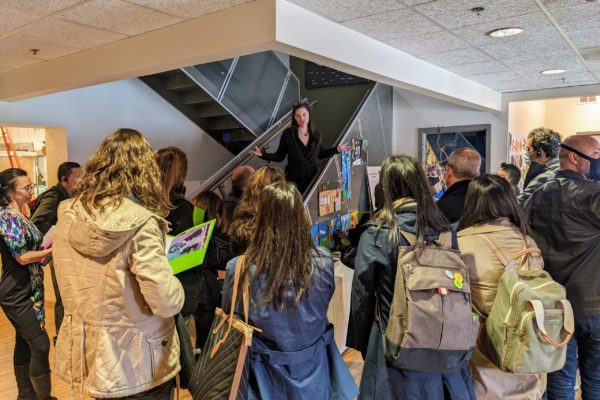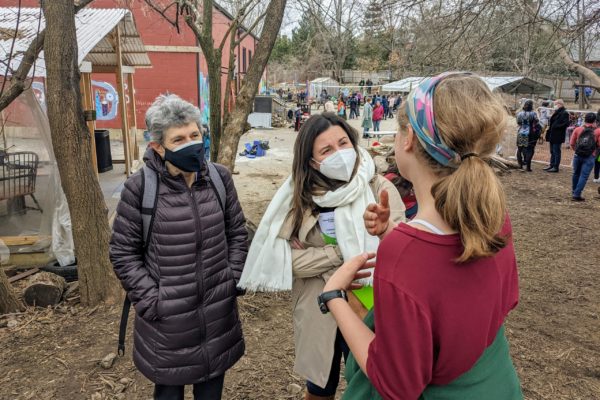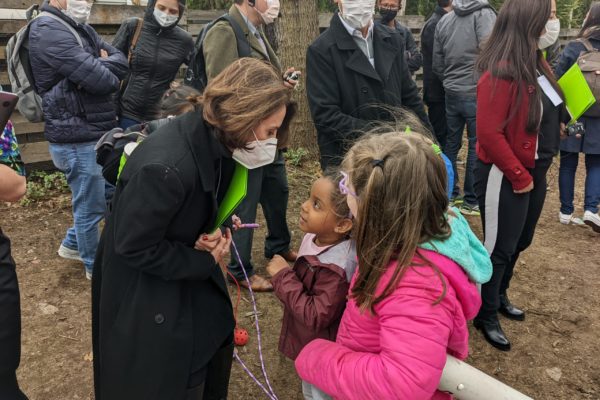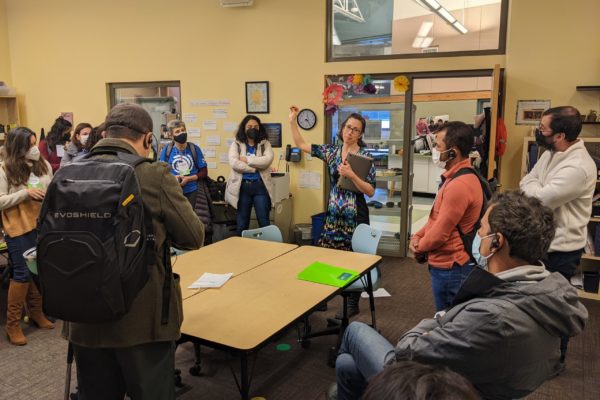Acera: the Massachusetts School of Science, Creativity & Leadership welcomed 30 visitors from Brazil, including 10 Ministers of Education. The April 8th visit was part of an ongoing collaboration between The Brazilian Creative Learning Network (BCLN) and MIT Media Lab. This is the sixth year that educators from outside the U.S. have come to Acera to observe and be inspired about new practices they can adopt.
The BCLN visitors observed Acera’s adventure playground during recess, as well as some examples of the school’s approach to hands-on learning. The group had the chance to meet and speak with students and teachers, and watch learning in action during a soil testing class activity and an irrigation design planning project.
“It is an honor to have visitors and to be able to inspire and help catalyze positive change in education,” said Courtney Dickinson, founder and director of Acera.
Several visitors expressed amazement at the complexity and nuance of a class discussion among a group of 2nd and 3rd graders about poetry. Following the visit, Acera leadership joined them at MIT, where the BCLN guests asked specific questions about Acera’s pedagogy as they thought through how to transform education in Brazil.
Over the years, Acera has hosted visiting groups from Brazil, China, Denmark, Canada and Finland. The K-10 STEAM school is also a yearly stop for a specialized Harvard Graduate School of Education course focusing on education innovation. Key tenants emphasized at Acera are part of the “Tools to Transform Schools” they articulate via the school’s outreach division, AceraEI, including:
- School norms focused on values and freedom to initiate rather than rules and constraints.
- An individual learning pathway and plan for every child.
- Teacher empowerment to design and adapt learning to best fit kids’ interests and needs.
- Math and literacy groups which fit with students readiness (rather than being defined and limited by age based norms).
- Positive school culture that intentionally fosters authentic relationships and sense of belonging.
Meaningful learning on topics that matter to kids, which include projects and hands-on work that induce a sense of purpose and joy.






